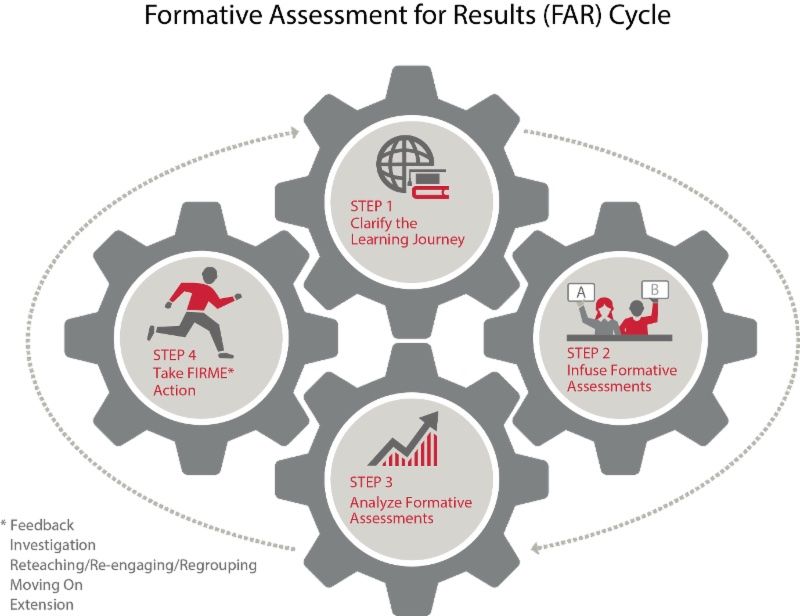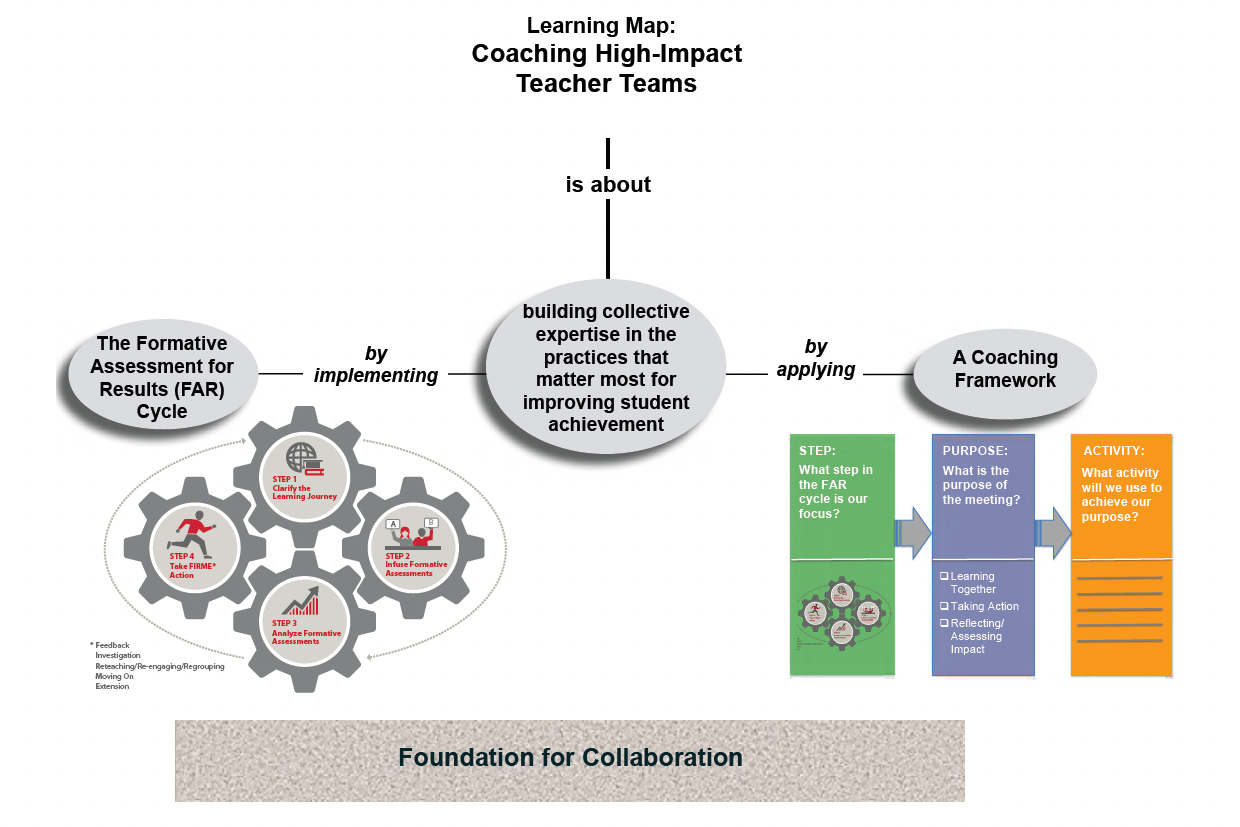About This Course
This is a 18 hour/3-Day program for:
- Coaches, Teacher Leaders, and Facilitators of Teacher Teams
- Professional Developers and the Administrators who supervise them
High-impact teacher teams build their collective expertise in the practices that matter most for increasing student achievement:
- They clarify learning goals
- They plan for and infuse formative assessment practices throughout their instruction
- They analyze results based on pre-established success criteria, and
- They take timely, targeted action to provide feedback, re-teach, and extend learning. In short, they use data frequently and in-depth to make sure that each student succeeds.
For decades, Research for Better Teaching (RBT) has been studying and learning about high-impact teacher teams, teams that improve student achievement – one meeting at a time. We know that building such teams is not easy. Team time is short; agendas are full. Coaches or teacher leaders don’t often have the time they need to research and plan team meetings. And the demand to meet the needs of diverse learners is pressing every day. But it is possible. And it is vital to our students’ success. When teachers gain collective confidence and skill in how to improve student achievement, they can quadruple the speed of learning, literally obliterating achievement gaps, according to John Hattie’s most recent research (www.corwin.com/visible learning, 2016).
This course has given our team a common goal and direction, helped focus our meeting times, and in turn has helped our common meetings times to be much more productive. |
TEAMS Participant |
Goals
This course distills what high-impact teams do into a practical approach that coaches and team leaders can implement immediately. Participants will learn how to:
- Increase the effectiveness of teacher teams by focusing on the highest leverage actions to improve teaching and learning
- Build the foundation for collaboration, strengthening an adult professional culture for continuous learning
- Plan team meetings that are differentiated based on student and team needs
- Act as co-learner and partner, not necessarily as “the expert”
- Facilitate team activities for learning about, taking action, and reflecting/assessing impact in a four-step improvement cycle:
Step 1: Clarify learning target and success criteria for students
Step 2: Infuse formative assessment in their daily practice
Step 3: Analyze formative assessment results
Step 4: Take timely, targeted F-I-R-M-E (Feedback, Investigation of student thinking, Reteaching, Moving on, and Extending learning) action
The focus of our team meetings is now instruction and instructional practices. We are taking the time to analyze data, look at student work, and make instructional decisions. We are engaging in the FAR cycle and building the understanding that this is a cyclical process which will impact student academic progress. |
TEAMS Participant |

Course Format
- Three-day experiential workshop sessions
- Online materials for facilitating team meetings, including facilitator guides, handouts, and videos
- Optional virtual coaching sessions led by an RBT instructor to support participants in transferring new knowledge into their practice and/or Onsite coaching sessions where an RBT instructor co-plans with participants, observes them facilitating, and provides feedback
Videos
TEAMS Elevator Speech
A St. Louis TEAMS participant shares her group's elevator speech about what the course is all about!
Resources

TEAMS has allowed me to improve my teaching practice by identifying clear goals, making learning objectives student friendly, and also establishing a unified language and terminology to discuss teaching practice. |
TEAMS Participant |
Course Information
Groups of 25 or more: Submit a Service Request to discuss how this course could benefit educators in your school or district.
Individuals or less than 25: Fill out our Open Enrollment Interest Form to be notified of the next open enrollment opportunity.
Credits:
Participants completing all program requirements can optionally receive one (without site visit) or two (with site visit) graduate credits through Fitchburg State University for an additional fee paid directly to FSU. Learn More